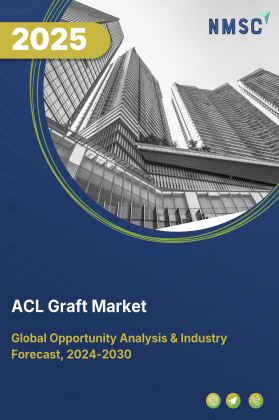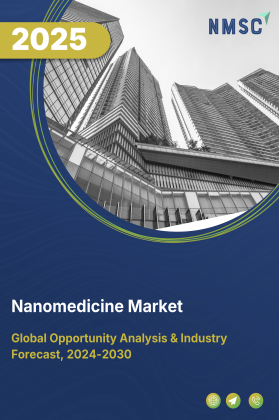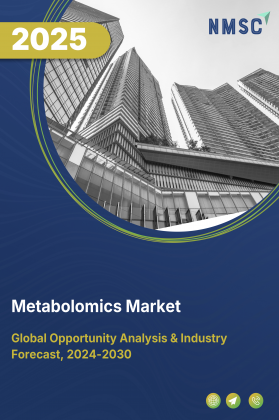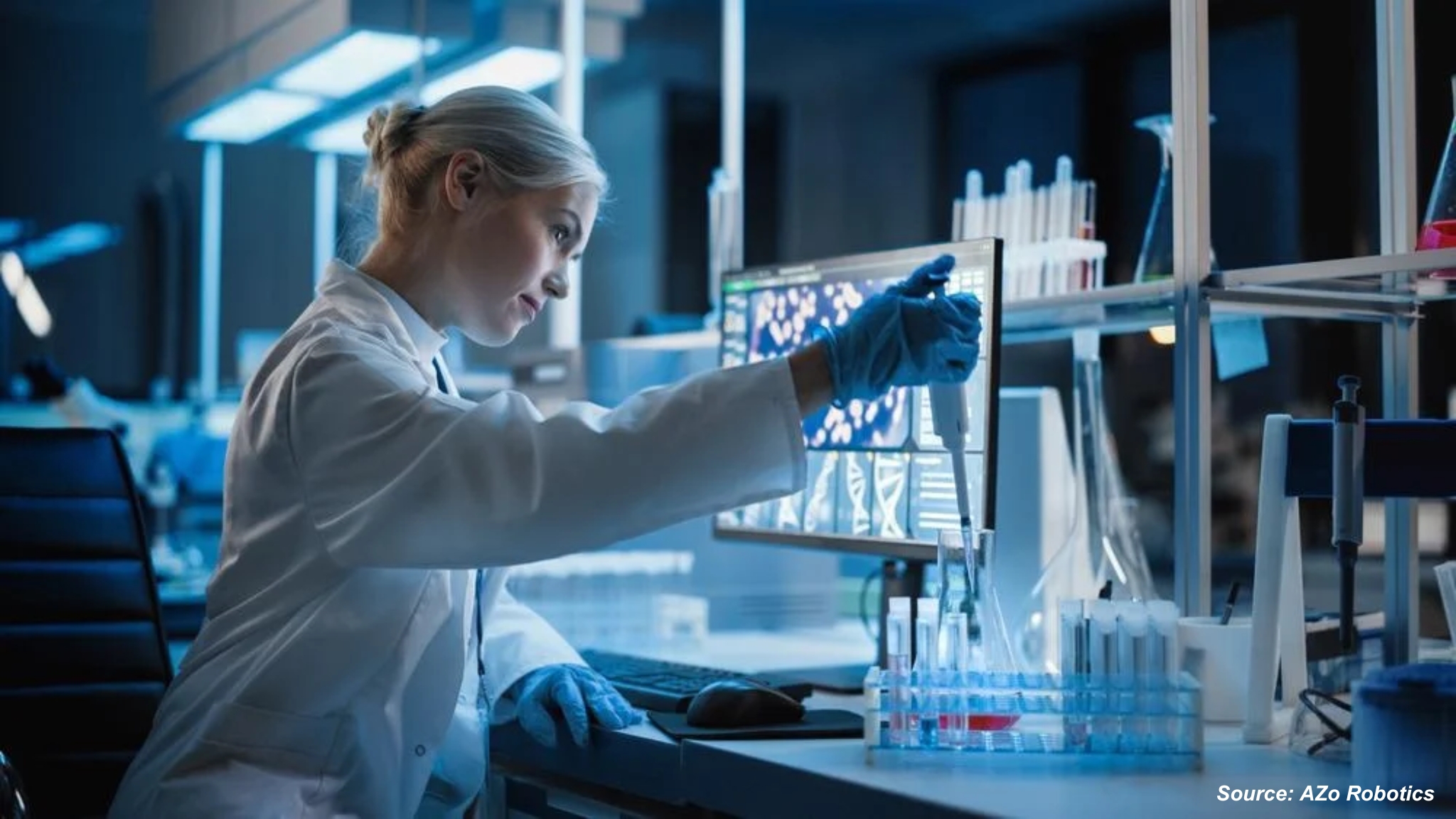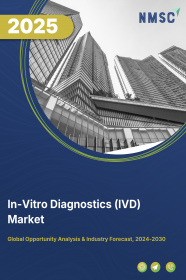
In-Vitro Diagnostic Market by Product & Service (Reagents & Consumables, Instruments & Devices, and Software & Services), by Technique (Clinical Chemistry, Immunoassays, Molecular Diagnostics, and Others), by Testing Site/Channel (Central & Reference Laboratories, Hospital & Physician Labs, Point-of-Care & Retail, and Others), by Application / Disease Area (Infectious Diseases, Oncology, Cardiovascular Health, and Others) – Global Opportunity Analysis and Industry Forecast, 2024–2030.
Industry: Healthcare | Publish Date: 22-Aug-2025 | No of Pages: 490 | No. of Tables: 373 | No. of Figures: 298 | Format: PDF | Report Code : HC375
Market Overview:
In Vitro Diagnostic Market was valued at USD 91.25 billion in 2022, and is predicted to reach USD 118.57 billion by 2030, with a CAGR of 3.2% from 2023 to 2030.
In vitro diagnostics (IVD) is the process of performing medical tests on samples such as blood, urine, or tissue outside the body, typically in a laboratory setting. These tests are conducted to diagnose, monitor, or screen various medical conditions or diseases, including infectious diseases, cancer, genetic disorders, and other similar conditions.
IVD tests use a range of technologies, including immunoassays, molecular diagnostics, clinical chemistry, and microbiology. The results of these tests are used by healthcare professionals to make informed decisions about patient care and treatment. IVD plays an essential role in healthcare, facilitating early detection of diseases, guiding treatment decisions, and improving patient outcomes.
Artificial Intelligence Accelerates Diagnostic Accuracy and Transforms Laboratory Workflows
The integration of artificial intelligence into digital pathology and computational diagnostics is revolutionizing laboratory operations worldwide. AI-driven platforms are enhancing accuracy in slide interpretation, streamlining anomaly detection, and reducing turnaround times across a wide range of diagnostic tests. Combined with digital imaging systems and cloud-enabled data sharing, these tools support real-time analysis and remote collaboration. Hospitals and diagnostic networks are increasingly adopting AI-enabled systems to boost test throughput, standardize results, and strengthen clinical decision-making—particularly in complex or high-volume environments.
Government-Driven Manufacturing Boost and Regulatory Reforms Strengthen IVD Ecosystem
Governments across the globe are prioritizing self-reliance in diagnostic manufacturing through policy incentives and streamlined regulatory pathways. National initiatives aimed at reducing import dependency are encouraging domestic production of diagnostic kits, reagents, and testing platforms. These efforts are often supported by financial subsidies, tax incentives, and fast-tracked product approvals. Regulatory harmonization with regional and global partners is also helping local manufacturers achieve compliance with international quality standards. Together, these strategies are reinforcing supply chain resilience, fostering innovation, and expanding access to affordable, homegrown IVD solutions.
Fragmented Reimbursement Policies and Budget Gaps Limit Advanced IVD Adoption
Inconsistent reimbursement structures across public and private healthcare systems continue to restrict the adoption of advanced in vitro diagnostics. While basic tests are generally covered, high-complexity assays such as molecular panels and precision diagnostics often face delayed or partial reimbursement. The absence of clear value-based assessment frameworks adds uncertainty for laboratories considering investment in newer technologies. Simultaneously, tightened healthcare budgets—especially in the aftermath of pandemic-related spending—have deprioritized diagnostic upgrades, particularly in smaller clinics and regional labs. These financial and policy barriers collectively slow the broader implementation of innovative IVD solutions.
Rise of Smart at-home Testing and Remote Monitoring Opens New Frontiers in Preventive Healthcare
Increasing patient demand for personalized and convenient healthcare is fueling the rise of AI-integrated remote and home-based IVD solutions. Smart sampling systems and AI-enhanced connected devices now enable individuals to perform routine monitoring—such as metabolic panels, infectious disease screening, and hormone tracking—from their homes. Results are promptly analyzed and shared via secure mobile platforms, supported by AI-driven interpretation and real-time provider alerts.
This approach eases the strain on traditional outpatient services by shortening test turnaround times and enhancing patient engagement in managing chronic conditions. Recent regulatory reforms have created streamlined approval pathways for AI-supported remote diagnostics within telehealth initiatives, empowering both local startups and established manufacturers to bring high-quality, locally calibrated, AI-enhanced devices to market.
By integrating existing logistics networks and telemedicine platforms, these remote IVD innovations can help bridge urban‑rural healthcare gaps and promote proactive wellness. They also generate new commercial opportunities for diagnostic companies, including subscription-based testing services and AI diagnostic-as-a-service solutions—ushering in a more accessible, data-driven era of preventive medicine.
North America is projected to dominate the in vitro diagnostic market
North America is a large and dynamic market, owing to factors such as an aging population, increase in incidences of chronic diseases, and advances in technology. It is characterized by a high degree of innovation, with many companies developing new products and technologies to meet changing needs of the healthcare system. Moreover, increase in demand for early disease detection and personalized medicine is expected to grow in the coming years.
The market is also driven by rise in adoption of advanced technologies such as digital pathology, companion diagnostics, and personalized medicine. Increase in adoption of laboratory automation and use of big data analytics in the diagnostic process is also expected to drive the market growth. In addition, the industry is composed of a mix of large, multinational companies and smaller, specialized firms. Some of the leading companies in the North America IVD market include Abbott Laboratories, Roche Diagnostics, Siemens Healthineers, and Beckman Coulter.
These companies have a strong presence in the market and offer a wide range of diagnostic products and services. For instance, in July 2020, Becton, Dickinson and Company obtained Emergency Use Authorization from the U.S. FDA for its fast diagnostic test for SARS-CoV-2, which uses the BD Veritor Plus System and generates results within 15 minutes. Presence of approximately 25,000 BD Veritor Plus Systems in hospitals, pharmacies, clinics, and urgent care centers throughout the U.S. has expanded access to COVID-19 testing in these healthcare facilities.
The IVD industry in North America is highly regulated, with companies subject to strict guidelines and requirements set by regulatory bodies such as the Food and Drug Administration (FDA) and Health Canada. This is to ensure safety, efficacy and quality of the products. The North America IVD industry is also characterized by a high degree of consolidation and mergers and acquisitions activity. This is driven by the need to achieve economies of scale and gain access to new technologies and products.
Asia-Pacific witnessed substantial growth in the in vitro diagnostic industry
The Asia-Pacific in vitro diagnostics (IVD) market is one of the fastest growing regions for IVD. Growth of the market is driven by factors such as increasingly aging population, growth in prevalence of chronic diseases such as diabetes, cancer, and increase in adoption of advanced diagnostic technologies. According to the International Diabetes Federation, an estimated 74 million adults in India were living with diabetes as of 2021. This has been a major driver of the IVD market in the country, as in-vitro diagnostic tests are essential for early detection and management of chronic diseases such as diabetes.
In addition, focus of governments on improving healthcare infrastructure and presence of global market players such as Siemens Healthineers, Abbott, and Roche Diagnostics further boosts growth of the market. For instance, the Healthy China 2020 initiative by the government of China aims to increase investments in the healthcare industry, improve accessibility and quality of healthcare services, and promote development of new medical technologies. This has led to increase in number of hospitals and clinics, boosting demand for IVD products and services in the country.
Global market players have significant resources to invest in research and development, which enables them to bring advanced and innovative diagnostic products to the market. This drives adoption of newer and more efficient diagnostic technologies, which drives the market growth. in June 2022, Siemens Healthineers announced that the company aims to entirely localize its production in China to improve production capabilities for Asia-Pacific.
Competitive Landscape
The in vitro diagnostic industry includes various market players such as F. Hoffmann-La Roche AG (Roche Diagnostics), Abbott Laboratories, Danaher Corporation, Thermo Fisher Scientific Inc., Siemens Healthineers AG, Becton Dickinson And Company (BD), BioMerieux SA, Bio-Rad Laboratories Inc., Qiagen N.V., Sysmex Corporation, Hologic Inc., Mindray Medical International Limited, DiaSorin S.p.A., ARKRAY Inc., Bruker Corporation, QuidelOrtho Corporation, Illumina Inc., Revvity (formerly PerkinElmer), EKF Diagnostics Holdings PLC, Autobio Diagnostics. These market players are adopting several strategies such as product launches, acquisitions, and innovation across various regions to maintain their dominance in the in vitro diagnostic market.
In addition, in January 2025, F. Hoffmann-La Roche AG (Roche Diagnostics) and Company Launched the cobas Mass Spec solution, automating mass spectrometry in clinical labs. Received FDA CLIA waiver for the cobas liat STI multiplex assay, enabling 20-minute STI testing..
Moreover, in January 2024, BioMérieux SAAcquired LUMED, a clinical decision support software firm to enhance infection monitoring and antimicrobial stewardship.
Key Market Segments
By Product & Service
-
Reagents & Consumables
-
Clinical Chemistry Reagents
-
Immunoassay Reagents (ELISA/CLIA)
-
Molecular Master Mixes
-
Hematology Controls
-
-
Instruments & Devices
-
Chemistry Analyzers
-
Immunoassay Systems
-
Molecular Thermocyclers/Sequencers
-
Hematology Analyzers
-
POC Devices
-
-
Software & Services
-
LIS, Data Analytics
-
CRO/Testing Services
-
By Technique
-
Clinical Chemistry
-
Metabolites
-
Electrolytes
-
Enzymes
-
-
Immunoassays
-
ELISA / CLIA / CMIA
-
Lateral-flow Rapid Tests
-
Immunofluorescence
-
-
Molecular Diagnostics
-
PCR
-
Isothermal NAAT
-
NGS
-
In-situ Hybridization
-
-
Hematology & Coagulation
-
CBC Analyzers
-
Coagulation Panels
-
-
Microbiology
-
Culture & Sensitivity
-
MALDI-TOF
-
Molecular ID
-
-
Urinalysis & Body Fluids
-
Other Techniques
By Testing Site / Channel
-
Central & Reference Laboratories
-
Hospital & Physician Labs
-
Point-of-Care & Retail
-
Home & Self-Testing
By Application / Disease Area
-
Infectious Diseases
-
Oncology
-
Cardiovascular Health
-
Endocrinology & Diabetes
-
Nephrology
-
Genetic & Prenatal Testing
-
Autoimmune Disorders
-
Drug Monitoring & Toxicology
-
Blood Screening & Typing
-
Other Indications
By Region
-
North America
-
U.S
-
Canada
-
Mexico
-
-
Europe
-
Germany
-
France
-
Italy
-
Spain
-
United Kingdom
-
Russia
-
Sweden
-
Norway
-
Denmark
-
Netherlands
-
Finland
-
Rest of Europe
-
-
Asia-Pacific
-
Australia
-
China
-
India
-
Japan
-
South Korea
-
Indonesia
-
Singapore
-
Taiwan
-
Thailand
-
Rest of Asia-Pacific
-
-
RoW
-
Latin America
-
Middle East
-
Africa
-
Key Players
-
F. Hoffmann-La Roche AG (Roche Diagnostics)
-
Abbott Laboratories
-
Danaher Corporation
-
Thermo Fisher Scientific Inc.
-
Siemens Healthineers AG
-
Becton Dickinson And Company (BD)
-
BioMerieux SA
-
Bio-Rad Laboratories Inc.
-
Qiagen N.V.
-
Sysmex Corporation
-
Hologic Inc.
-
Mindray Medical International Limited
-
DiaSorin S.p.A.
-
ARKRAY Inc.
-
Bruker Corporation
-
QuidelOrtho Corporation
-
Illumina Inc.
-
Revvity (formerly PerkinElmer)
-
EKF Diagnostics Holdings PLC
-
Autobio Diagnostic
REPORT SCOPE AND SEGMENTATION:
|
Parameters |
Details |
|
Market Size in 2021 |
USD 95.02 Billion |
|
Revenue Forecast in 2030 |
USD 118.57 Billion |
|
Growth Rate |
CAGR of 3.2% from 2023 to 2030 |
|
Analysis Period |
2022–2030 |
|
Base Year Considered |
2022 |
|
Forecast Period |
2023–2030 |
|
Market Size Estimation |
Billion (USD) |
|
Growth Factors |
Artificial Intelligence Accelerates Diagnostic Accuracy and Transforms Laboratory Workflows Government-Driven Manufacturing Boost and Regulatory Reforms Strengthen IVD Ecosystem |
|
Countries Covered |
18 |
|
Companies Profiled |
20 |
|
Market Share |
Available for 10 companies |
|
Customization Scope |
Free customization (equivalent up to 80 analysts working hours) after purchase. Addition or alteration to country, regional & segment scope. |
|
Pricing and Purchase Options |
Avail customized purchase options to meet your exact research needs. |

















 Speak to Our Analyst
Speak to Our Analyst



